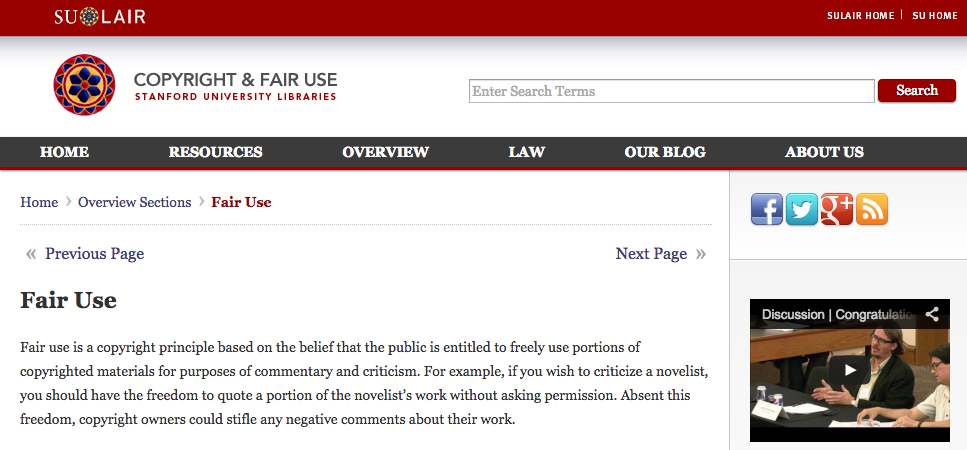Imagine this scenario. You go to your physical mailbox; inside is a certified letter from a law firm that you have never heard of. You open it up, wondering what it can be. Within a few sentences, you find that the lawyer is stating that you committed copyright infringement. Next, it says that for a small fortune you can avoid litigation and further damages. Your mind races, what should I do?
While this is a worst-case example, online copyright infringement is a big problem that can result in financial and reputational damages against the company that commits it. Whether you have a small one-person ecommerce site or a larger site that has a large support staff, as the owner or manager of a site, you want to make sure that all the images, text, videos, and other artistic works on your site are there legally.
What Is Copyright Infringement?
Simply, but accurately, Wikipedia defines copyright infringement as “the use of works protected by copyright law without permission” including the infringing of “certain exclusive rights granted to the copyright holder, such as the right to reproduce, distribute, display or perform the protected work, or to make derivative works.” In even more layman’s terms, copyright infringement is the use of an artistic work that doesn’t belong to you without getting permission from the owner.
In even more layman’s terms, copyright infringement is the use of an artistic work that doesn’t belong to you without getting permission from the owner.
With the copy and paste mentality of many online users, it is easy to see why copyright infringement is rampant online. If you find a news article that you like, you can easily copy the text on your site. If you are in search of the perfect picture to go with a blog that you wrote, you can right-click on the picture and it now is on your site. However, with both of these actions, you open yourself up to copyright infringement claims — this includes someone acting on your behalf for your website, such as an employee, a paid copywriter, or a social media contractor.
Must Obtain Permission
Prior to reposting images, videos, or text to your site, you must have permission from the copyright holder. On some sites, such as some of the major news sites, the site may already have a list of what rights they will grant you. For example, Practical Ecommerce states that you may “print or download portions of the materials from various areas of this website solely for your own non-commercial use provided that you agree not to change or delete any copyright or proprietary notices from the materials”; however, no rights are granted to copy the information from this site to your site online (this does not include sharing or linking, which are discussed below).
The Denver Post, though, states in its Terms and Conditions of Use that it takes “no issue with people who quote a small amount of a Post story so as to comment on it, perhaps even criticize us” but that you cannot take “no more than a headline and up to a couple of paragraphs or a summary of the story”. Other sites may say that you cannot take anything (although the argument that such use falls under fair use would still be available).
If you have committed copyright infringement on your website, the owner of the copyright can sue you for damages. Damages in copyrights cases can range from what the owner actually lost (“actual damages”) which may be negligible, if the content has little commercial value, to an amount that is allowed by statute and determined by a court that may range from $750 to $30,000 per incident of copyright infringement if the copyright owner can claim statutory damages. In addition, there may be more damages if a court finds that the infringement was willfully committed of up to $150,000 per incident and you may be liable for attorney fees and court costs.
Protecting against Infringement Claims
To protect yourself from copyright claims, there are several ways that you can ensure that you are placing information on your website correctly and legally. First, it is always good just to contact the owner of the copyrighted information and ask for permission to use it. Many people are flattered to know someone has read their blog post and may allow you to use it with certain terms and conditions, such as giving them credit with a link back to their site — although this often isn’t true of people that typically sell their copyrighted works for a living, such as professional photographers or writers.
Second, you can use copyrighted information if it complies with fair use. The websites of the United States Copyright Office and Stanford University have lots of information on fair use and when it applies to your use of copyrighted information. However, fair use can be interpreted differently, and the copyright owner may disagree with your belief that you comply with fair use. This could end up with you getting one of those nasty letters and a court date anyway. That is why you should tread carefully with fair use, and getting permission from the copyright owner is ideal. Lastly, you can always link to the information rather than copy and paste it. For example, if you like this article, you can always say something on your site such as “I just read an article by Elizabeth Lewis, an awesome attorney, on Practical Ecommerce, which you can read here.”
Why Take a Risk?
Copyright infringement can be costly and cause reputational damage to your business if your customers start to believe you don’t actually write what you post online. The best way to avoid copyright infringement claims is to author all your own written works and create your own pictures and videos on your site. Why take an unnecessary risk? However, if you do want to use something created by someone else, get permission from the owner or make sure fair use clearly applies. Don’t forget to make sure that others posting on your site follow the same rules.





